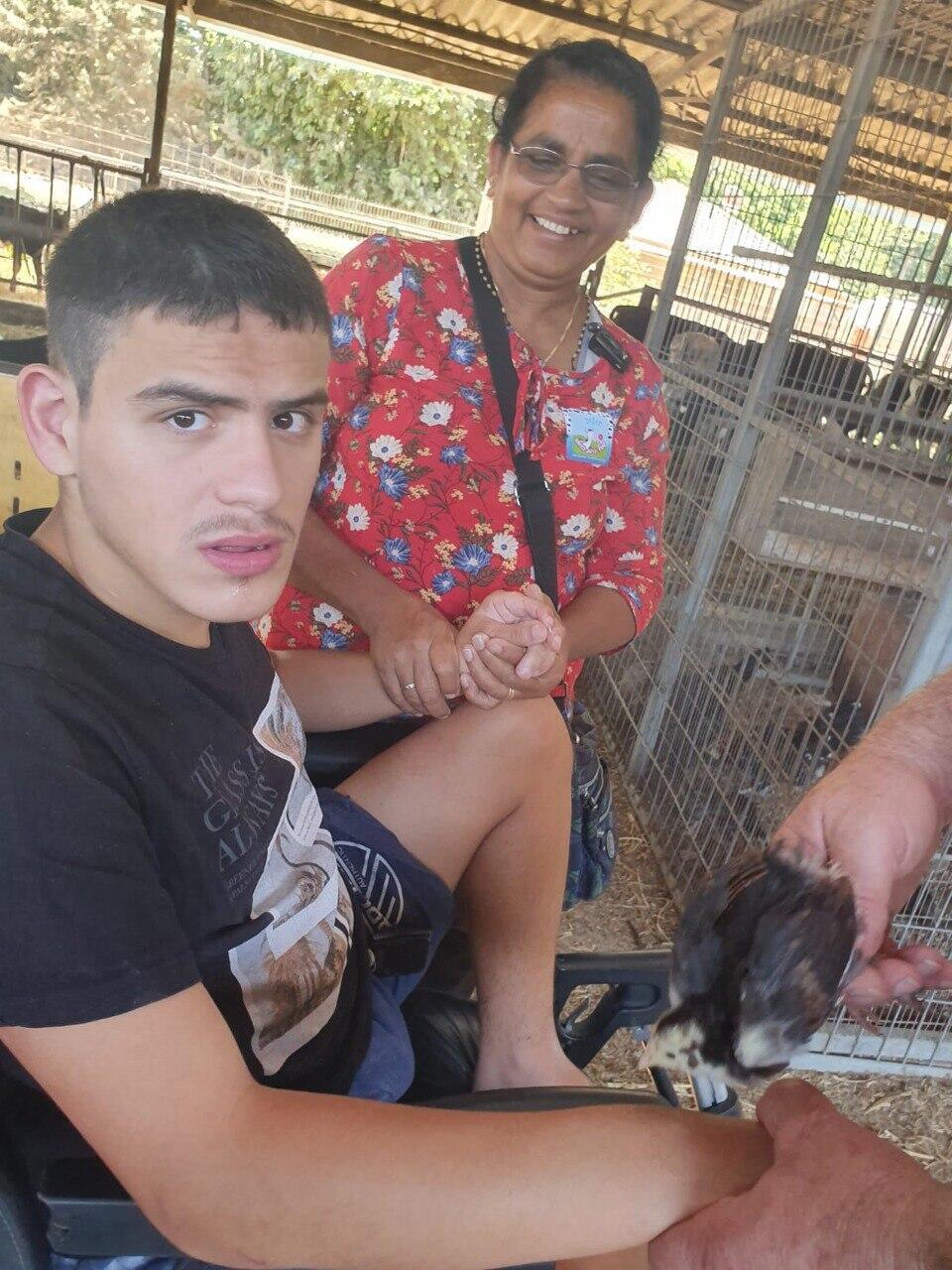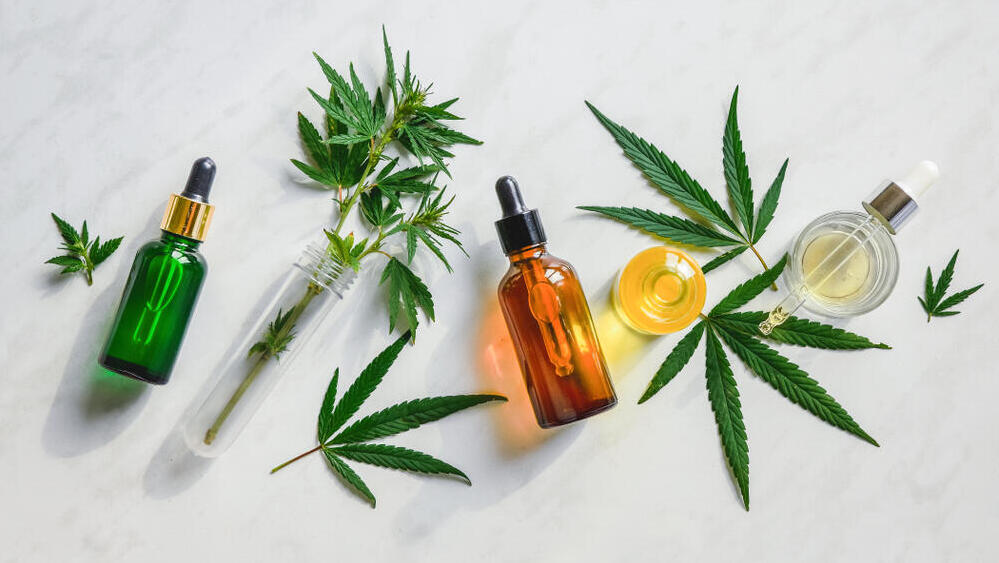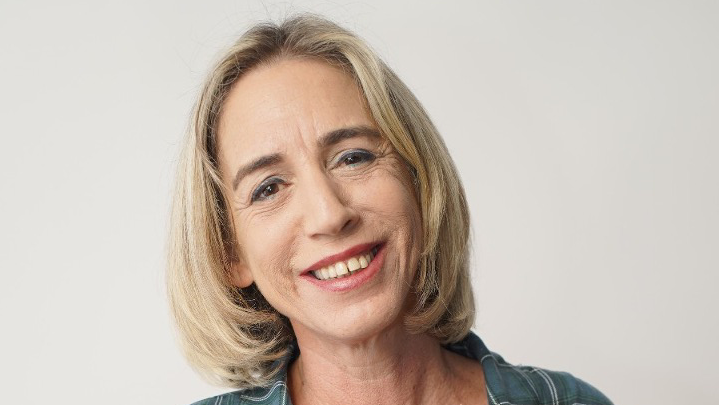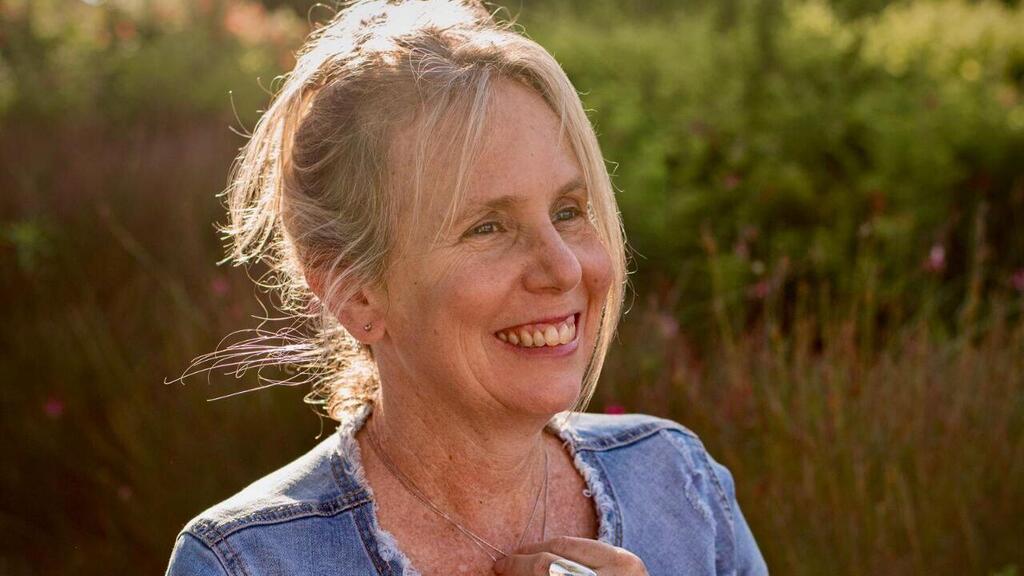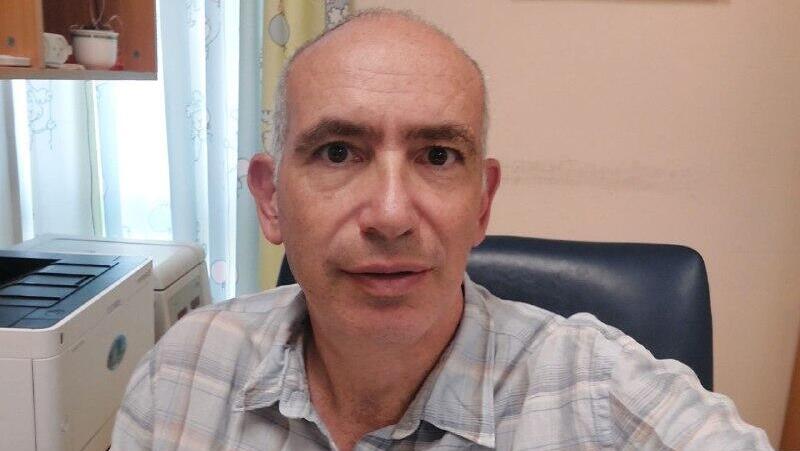Getting your Trinity Audio player ready...
Israel has over 130,000 medical cannabis patients – the highest per capita rate of any Western country. The Health Ministry has approved its use for a variety of medical conditions including cancer, chronic pain, PTSD and more.
“My son used to bang his head against the wall and scratch himself until he bled. He had withdrawal symptoms when we weaned him off psychiatric medications, like a drug addict. Then, when he was 12, we started treating him with medical cannabis. At 16, he called me ‘Mom’ for the first time. I even got a hug,” recounted Dafna Azarzar, whose 20-year-old son Ilay is diagnosed with autism.
In 2021, the government approved treating children on the autism spectrum with cannabis oil. This followed research led by Dr. Adi Aran, head of Shaare Zedek Medical Center’s Pediatric Neurology Unit, which found the treatment improves the behavioral and biochemical markers of children with autism.
The cannabis plant contains three main families of compounds: terpenoids, flavonoids and cannabinoids. Among the hundreds of compounds in the plant, the ones we are familiar with are THC (tetrahydrocannabinol – the primary psychoactive component in the plant) and CBD (cannabidiol – comprising up to 40% of the plant's extract, with anti-psychoactive effects).
The more common compound among medical cannabis users is THC, which causes the “high” effect – euphoria, relaxation, and reduced pain; the primary use of the plant among autistic children is its CBD compound.
Avigail Dar, mother of 30-year-old Yuval, who has been treated with medical cannabis for eight years, said it is difficult to obtain cannabis to give to your child. “Cannabis oil treatment should be a part of the doctors’ treatment options, but they prefer to prescribe children medications with very severe side effects to cover their own backs. You have to go through a bureaucratic and financial ordeal in order to give your child cannabis.”
According to Avigail, founder of the Cannafora Cannabis for Autism and Neurodevelopmental Challenges Treatment Center, which has been supporting parents of children with autism with medical cannabis treatment since 2016, Health Minister Uriel Busso and his aides weren’t aware autistic children are being treated with the substance.
Aran is a revolutionary figure in the field. "The study we held was the first to be done in a controlled manner, and no larger study has been published since," he said. "We saw promising signs of the efficacy of cannabis, but it’s important to remember that it’s not a miracle cure and that we’re still in the early stages of research.
“In addition, the entire medical world is affected by the placebo effect and the effect is greater than with other drugs when it comes to cannabis. In our study, however. we located things beyond placebo. For example, children who were violent toward themselves and others were less violent during treatment."
Parents must work hard and be well off in order to begin treatment. It costs thousands of shekels per month (since it isn’t included in Israel’s health care basket) but shows results. Many families, as well as neurologists, report drastically changed lives due to treatment.
Dr. Orit Stoler, an expert in pediatric neurology and head of the Maccabi Healthcare Services’ Sharon District's Child Development Unit, was part of the second study in the world on cannabis and autism, which she held with Professor Mati Berkovitch and his team at Shamir Medical Center, Professor Eynat Gal from the University of Haifa, and Professor David Meiri from the Technion.
In the 2022 study, they examined the social communication abilities of 80 children on the autism spectrum treated with high-concentration CBD oil, specially prepared for the study at intervals of three and six months.
"We were surprised," Stoler said. "We saw an impact on the children's social abilities. It’s not a miracle cure and not suitable for everyone – but some of the indicators improved. And for some autistic individuals, it’s a life-changing medication."
The study concluded that cannabis oil reduces anxiety, which consequently reduces stereotypical autistic behaviors such as rigidity or repetition. This is significant as there’s still no specific drug treatment for children on the spectrum, and the FDA has, overall, approved only two drugs for autism thus far.
Until April 1, before the new medical cannabis reform in the field took effect, certain doctors could issue prescriptions directly from their computers. "Since April, however, it’s no longer in our hands," says Aran. "Now, prescriptions can only be issued if you have a special system in place – and hospitals haven’t invested in it.”
"HMOs also prefer to work with specific institutes. I now have patients who find it difficult to renew their prescriptions. Everything happened too quickly, and we weren’t adequately prepared,” he added.
“I believe the reform was born out of a good place, to try and ease the process of prescribing medical cannabis, but it has only created difficulties as of now." Avigail Dar said, "In order to renew the prescription, you need a specialist's recommendation. The waiting time for a specialist in public health care is six months. You can’t wait six months when you have an autistic child at home."
"The medical cannabis reform is an important and significant step in easing the burden on patients and improving the quality of their care,” The Health Ministry said in a statement. “It allows specialist doctors to issue medical cannabis prescriptions. The ministry is working in collaboration with HMOs to increase the number of relevant doctors for this matter."


